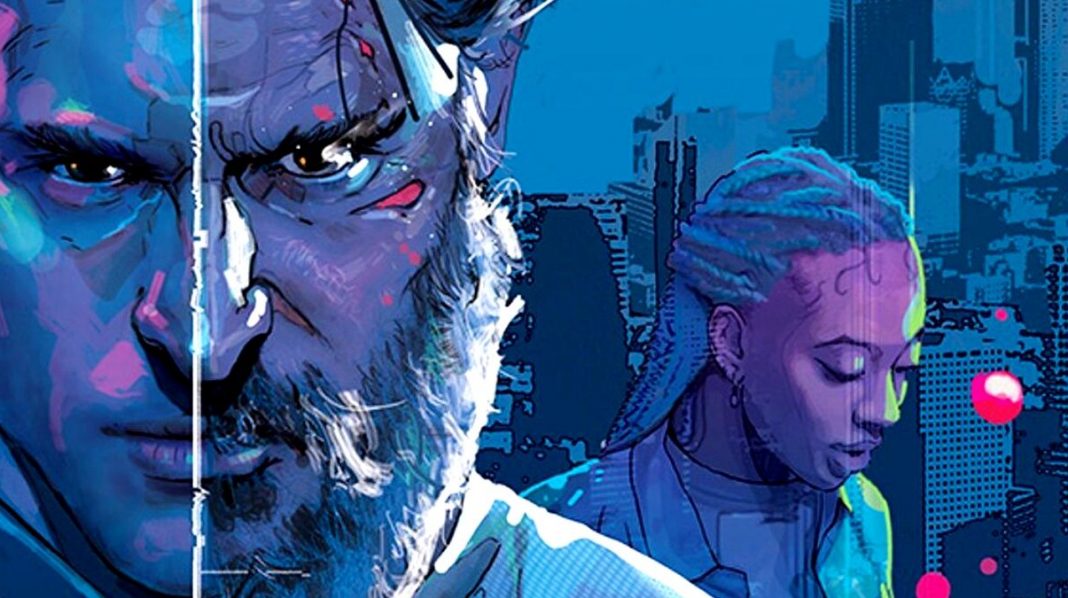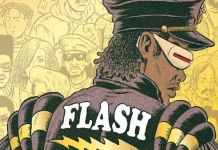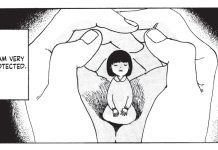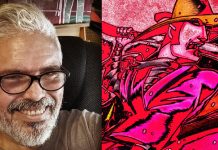As it stands, the battle of the fandoms between the Marvel and DC movie universes rests on the mood and tone its heroes are set in. Marvel detractors condemn the action/comedy blend that some argue makes these movies empty thrill rides while the DC detractors make fun of and abhor the company’s darker take on superheroes, in which they’re portrayed as broken gods submerged in trauma.
So, either they take themselves way too seriously or they let humor rob them too much of their essence.
Director Adam Egypt Mortimer isn’t concerned with having his feet planted exclusively on either side of the argument. His movie Archenemy, a story about a homeless man who claims to be a superhero from another dimension, bobs and weaves between the two to create an original take on the genre that is less interested in homage and more intent on bringing fresh ideas into an already crowded playing field.
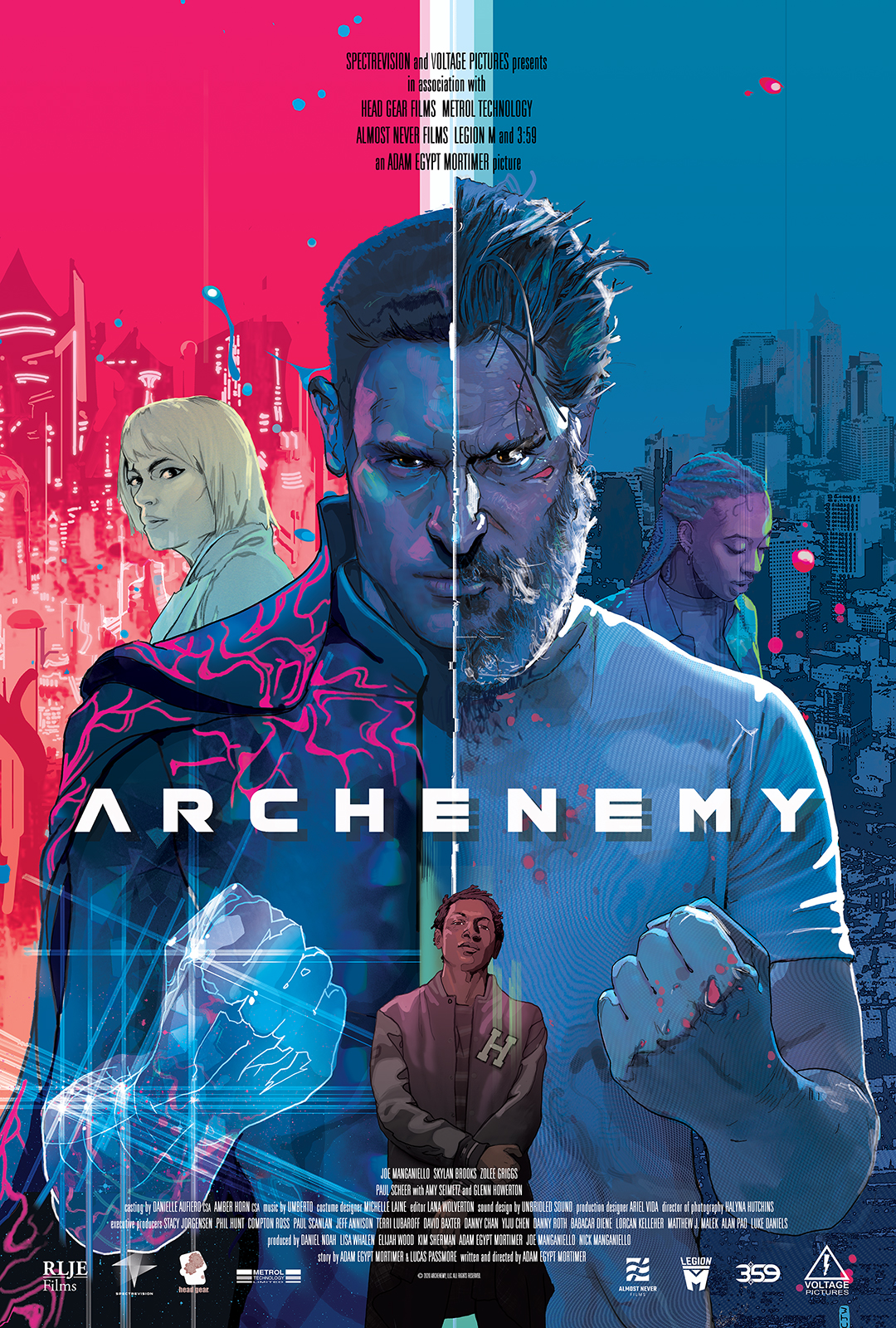
Archenemy follows the aforementioned homeless man, called Max Fist (Joe Manganiello), as he opens up to a young aspiring media writer known as Hamster (Skylan Brooks) about the reasons why he’s stuck on our planet after losing a fight against his nemesis from his home dimension. Fist is adamant about not being called a ‘super’ hero. It’s as if it’s a title he’s not worthy of anymore after the events that got him stranded in our Earth.
Hamster’s sister, called Indigo (Zolee Grigs), is trying to earn enough money to get out of the drug business to lead a less dangerous life with her brother. I was immediately struck by the character’s names, all catchy comic book-like names that seemed primed and ready to become synonymous with either super-heroics or super-villainy. The same goes for the movie’s villains. One is called The Manager (Glenn Howerton) and the other Cleo Ventrik (Amy Seimetz). The movie wants its audiences in a comic book mindset and this particular detail sells it well.
The name game isn’t meant to be taken as a mere wink to the genre’s conventions. It reveals a lot about what the movie wants to say with its comic book-infused story: heroes and villains can exist and they can even be comic-like, but their origins and realities are much less like those found in the classic “hero’s journey.” Real-life already provides enough experiences to create heroes and villains without needing cosmic reasons to do so.
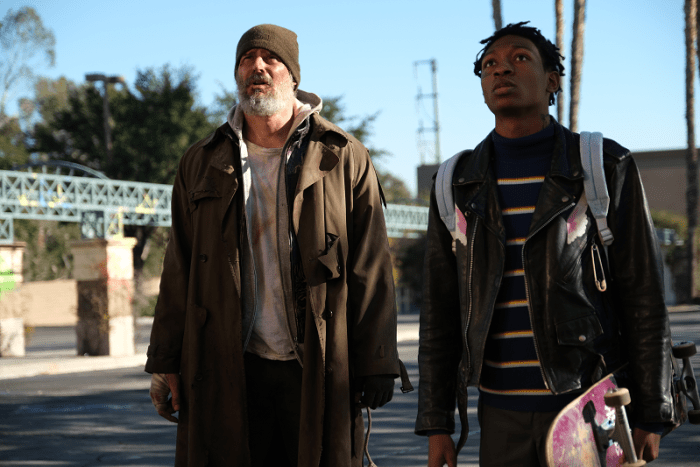
In this sense, Archenemy cleverly takes from both sides of the Marvel and DC storytelling equations to portray heroism as both a privilege and a burden carried by complicated humans rather than gods. Joe Manganiello’s performance seals the deal on this part with his intense and dedicated performance.
Manganiello’s interpretation of Max Fist hints at the character struggling with the expectations people dump on heroes such as him—which in the movie’s case takes a bit from Superman and maybe even The Sentry, in terms of mental instability.
His origin story, his regrets as a failed hero stem from the ideas people assume authority figures responsible for entire cities should uphold. Imagine Superman letting Metropolis fall on his watch, Spider-Man failing to save the people of New York City on a daily basis.
While it might seem that the movie favors the DC Snyderverse-like version of superhero storytelling, Mortimer subverts it with Hamster and Indigo’s own take on the matter. These two characters serve as the story’s potential for hope. They’re livelier, less inclined to succumb to seeing the world as an absolute disaster. Instead, they view things in a more realistic way, grounded by the experience of two young black citizens in a drug-ridden and poverty-stricken part of an American city.
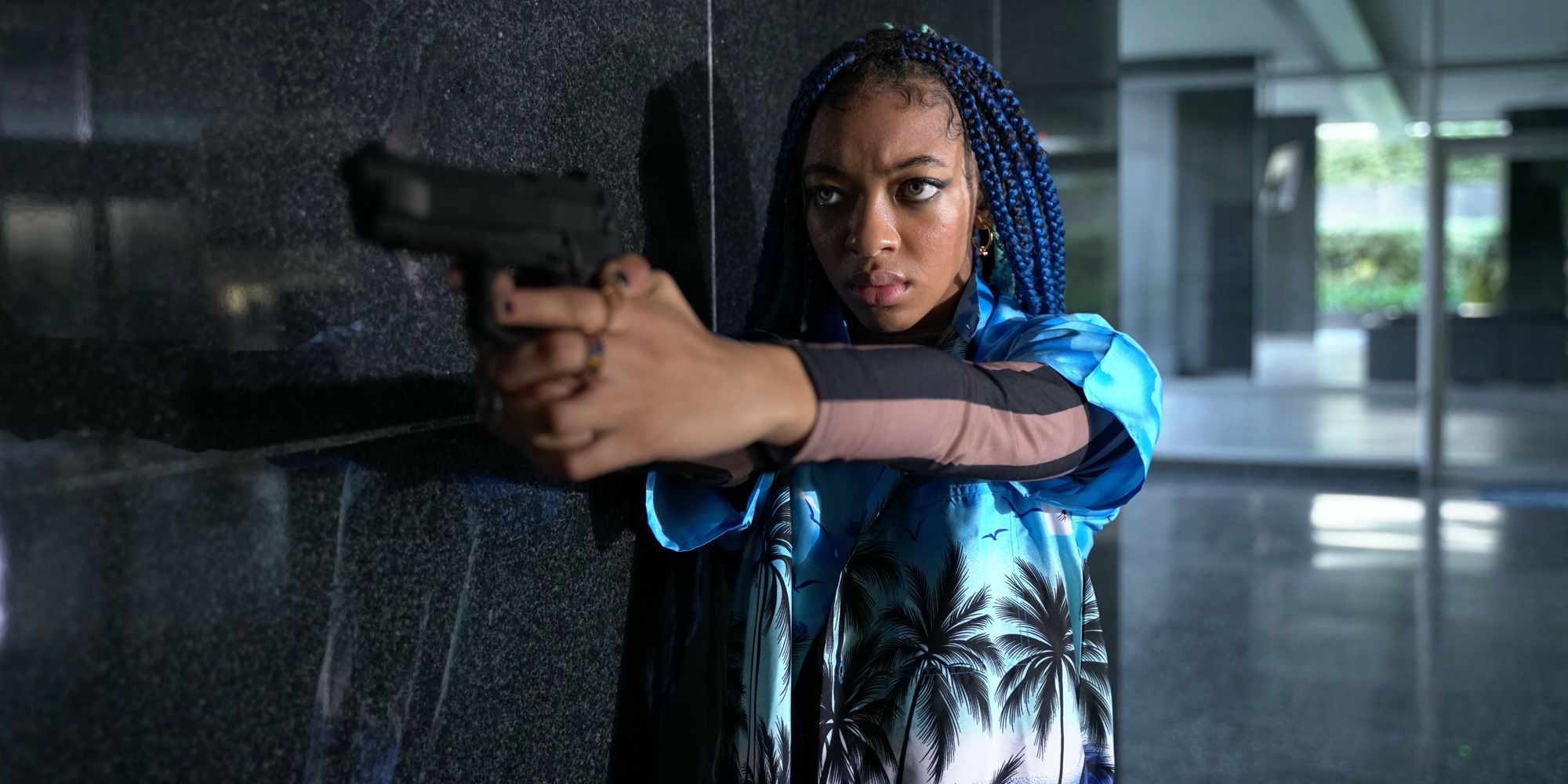
Mortimer does an excellent job of balancing the bleaker aspects of superhero life with the possibility of good still pushing through even if it takes more violence than we’re used to accepting when watching the more mainstream superhero movies. Fist’s insistence on not being referred to as a ‘super’ adds to the idea heroism does not hold to a singular definition of it, nor that it is meant to be infallible. There’s no need to follow in Superman’s steps. Fighting for the right things can sometimes be enough.
Of note, as well, is the movie’s approach to keeping the comic book vibe present throughout the entire film. Mortimer achieves this by making every flashback or exposition segment play out in a kind of motion comic format, where animation replaces the live actors. This goes from the opening credits to specific sequences in which Max Fist talks about his home dimension. These segments are filled with a kind of distorted energy that portrays Fist’s homeworld as being a step away from succumbing to absolute chaos.
These animations are credited to Sunando, Kevin Finnegan, and Danny Pérez. Sunando is a comic book artist himself, based out of Bangalore, India, while Finnegan and Pérez have been involved in graphic design and 2D/3D animation respectively. Mortimer has also had experience as a comic book writer, co-creating a comic with Darrick Robertson called Ballistic, a mesh of cyberpunk body horror, science fiction, and ultra-violence that centers on a man with a talking gun in a world where that pairing is just part of the milieu.
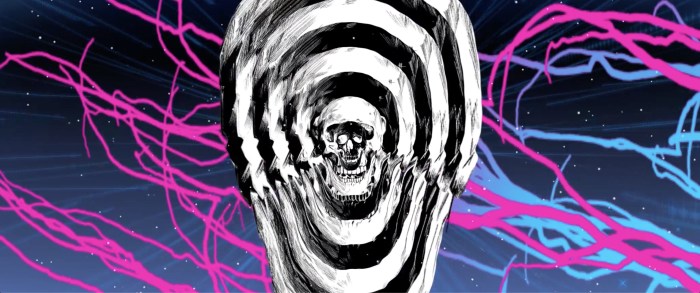
Archenemy is a different kind of superhero movie. It’s a measured take on what lies at the heart of heroism to get at what works and what doesn’t. It argues for different heroes but doesn’t do away with all of the classic elements the genre’s already established. Instead, it asks us to consider taking things out of the established order to create new expectations, to question whether being ‘super’ really has anything to do with being a hero.
Archenemy is available now on VOD.


